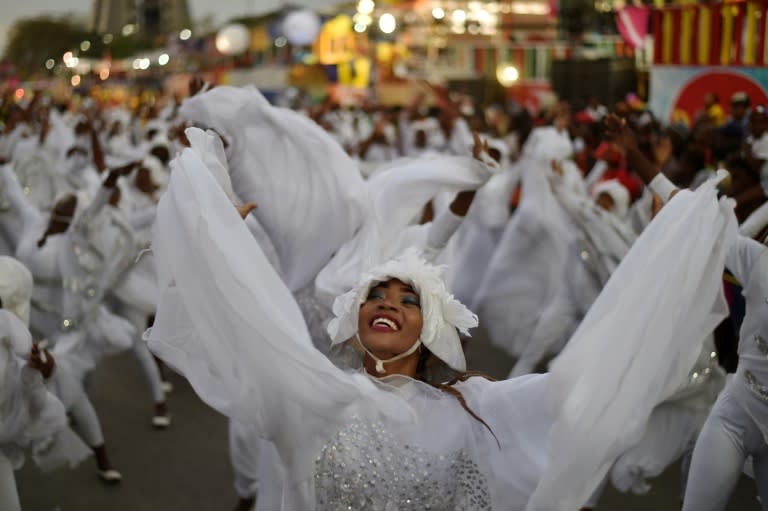Seizing platform as DJ to bring pride to Haiti
Michael Brun has DJ-ed at top music festivals and his remixes have generated millions of streams. But he believes his swiftly rising career was all preparation for his latest project. Brun has shifted gears from the electronic dance music scene to the sounds of his native Haiti as he seeks to craft an international cool factor for a Caribbean nation so accustomed to bad-news headlines. His new track, "Bayo," is driven by an infectious horn melody derived from Haiti's rara carnival music, set to an enthusiastic beat with traces of Afrobeat as well as Brun's electronic origins. "Bayo," which means "to give" in Haitian Creole, is accompanied by a celebratory video full of dancing children showing their best moves and three vocalists, including rapper Strong G whom Brun discovered on a recording trip to Gonave Island. The Port-au-Prince-born, New York-based Brun said his past five years in electronic music amounted to an intense education. "I got to a point where I felt comfortable with my level as a producer and that I could approach doing this Haitian music mix from a respectful, strong position," Brun, who speaks with a calm eloquence, said on a bench outside a coffeehouse near his home in Brooklyn. "It wouldn't be an experiment that's like, oh yeah, let me give this a shot. I really wanted to come about it carefully," Brun said. The 25-year-old once studied to become a pediatrician as he sought a way to contribute to Haiti. But he found that he made a quick impact through music. "I realized that if I could do something that could incorporate my culture in a strong way, it would have a huge effect on the way that people saw themselves in Haiti," he said. - Fighting negativity - Brun also hopes to stimulate interest in Haiti among outsiders. He first moved to the United States to attend a military school in Indiana and then studied at Davidson College in North Carolina. Brun said he was taken aback by poor perceptions about majority-black Haiti -- notoriously referred to as a "shithole" in reported comments by President Donald Trump. "It was weird to me. There was a disconnect because I knew all of these things that Haiti had done -- and all of the work that needed to be done to get it back to the stature that it deserves -- but at the same time I was seeing how much negativity was coming out," he said. Brun said there was no reason why Haiti, the second independent country in the Western Hemisphere after the United States, could not carry the musical clout of Jamaica or Cuba, fellow Caribbean nations with rich cultural mixes. Puerto Rico has also increasingly made its mark in the United States, long resistant to non-English songs, with mega-hits such as "Despacito" rooted in the island's once underground reggaeton music. "When you're listening to something from Colombia and Benin and Cuba and Haiti, it's not that different -- the African influence is so strong in those songs. It's like brothers and sisters," Brun said. - Made possible by streaming - Brun, whose father played in the popular Haitian band Skandal and whose mother is from Guyana, said he pored through decades worth of Haitian music including rara and kompa dance music before undertaking the project. He reluctantly called his upcoming work an album. With 1.7 million monthly listeners on Spotify, he plans to showcase one song each month before releasing a compilation. Brun, who has played biggest-name US festival Coachella and remixed songs by pop artists such as Kesha and OneRepublic, hailed streaming services for making his story possible. Spotify's curators put him on key playlists alongside mega-stars such as Taylor Swift. Brun, who runs his own Kid Coconut record imprint, doubted he would enjoy as much artistic freedom if he were signed to a major label. The DJ plans an elaborate live show to accompany the project in which he wants fans to be "transported immediately to Haiti in a setting that maybe you never have before." Even though Brun started his project well before Trump's profane insult, he felt energized. "It's not the first time I heard negative things about my country; it's not going to be the last," he said. "If anything, I think it serves as a call to action to me. It makes it clear that these stories need to be told and people need to hear the music."




